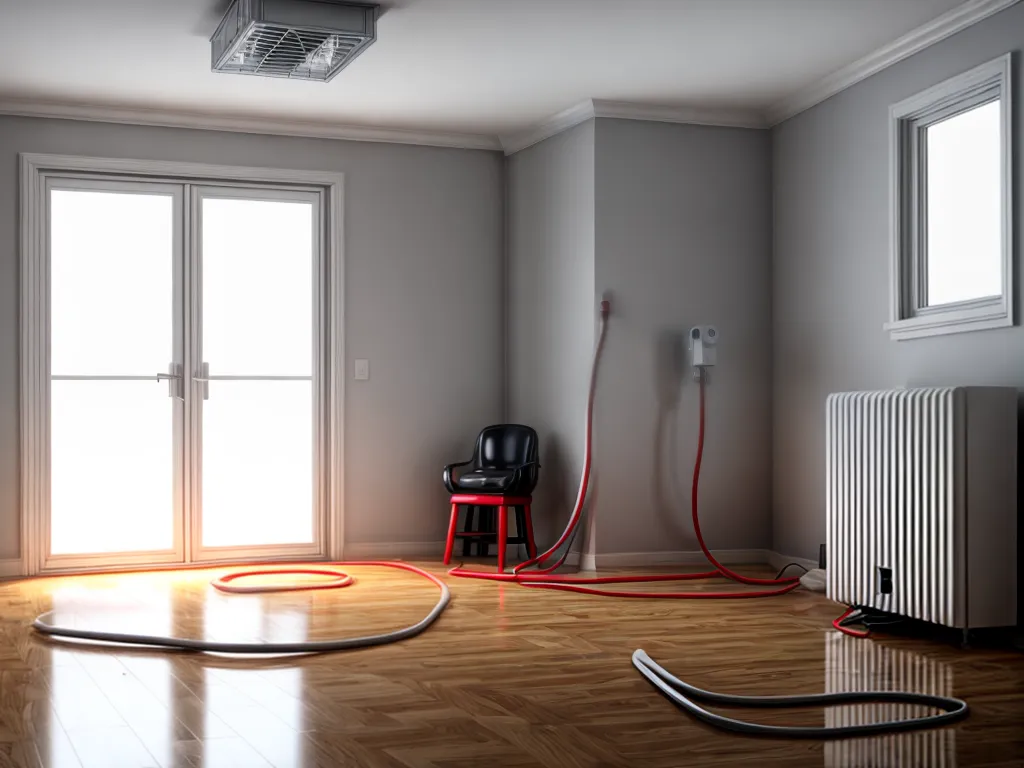
How to Minimize Electrical Fires in Your Home
Electrical fires can be deadly and cause immense property damage. As a homeowner, you want to do everything possible to prevent electrical fires from occurring in your home. Here is a comprehensive guide on how to minimize electrical fires in your home.
Inspect Your Electrical System Regularly
The first step is to inspect your electrical system regularly. I recommend doing a thorough inspection at least once a year. Look for:
-
Frayed or cracked wires and cords: Replace any damaged wires right away, as they can easily start a fire. Make sure cords are not pinched behind furniture.
-
Loose connections: Loose electrical connections can allow arcs or sparks that can ignite a fire. Check where wires connect to outlets and switches for any looseness.
-
Outlets that feel warm: Warm outlets indicate an unsafe electrical load. Unplug any devices from warm outlets and have an electrician inspect.
-
Flickering lights: Flickering lights are a sign of a potential wiring issue. Have your electrical panel inspected if lights flicker.
-
GFCI and AFCI protection: Make sure outlets near water sources have GFCI protection. Consider having AFCI breakers installed to protect outlets and circuits from arcing faults.
Update Outdated Electrical Systems
If your home has outdated electrical systems, I strongly recommend having them updated by a licensed electrician. This includes:
-
Upgrading fuse boxes to modern circuit breakers. Fuses can overload and fail to prevent fires.
-
Replacing old aluminum wiring, which is prone to fire hazards if not maintained properly.
-
Adding AFCI circuit breakers to protect against arc faults.
-
Adding more circuits to reduce overloads if needed.
-
Upgrading undersized wiring that cannot safely handle modern electrical loads.
Use Surge Protectors
Use surge protectors for electronics like TVs, computers, and appliances. Surges can damage wiring and components, creating fire hazards. Choose UL-listed surge protectors with adequate joule ratings for the devices you are connecting. Avoid cheap, low-quality surge protectors.
Do Not Overload Circuits and Extension Cords
Be careful not to overload circuits and extension cords. Signs of overloads:
- Frequent tripped circuit breakers
- Dimming lights when turning on devices
- Warm outlets
- Extension cords that are hot to the touch
Spread electrical loads across more circuits. Have additional circuits added if needed. Use heavier gauge extension cords for high-power devices like air conditioners.
Keep Flammables Away from Heat Sources
Keep flammable materials like paper, fabrics, and chemicals away from heat sources like lamps, stoves, and space heaters. Do not store flammables near electrical panels or other heat-generating electrical equipment. The heat can slowly ignite these materials.
Use Space Heaters Safely
Follow these tips when using electric space heaters:
-
Place on a level, hard surface away from foot traffic. Avoid putting on carpets which can overheat.
-
Keep a 3 foot clearance area around the heater free of objects and furnishings.
-
Plug directly into a wall outlet, not an extension cord or power strip.
-
Always turn off when leaving the room or going to sleep.
Have a Qualified Electrician Do Major Electrical Work
Always hire a licensed, insured electrician for major electrical work like rewiring, replacing an electrical panel, or installing new circuits. Avoid amateur DIY electrical work which often causes fires. The cost of professional repairs is insignificant compared to the damage from a house fire.
Install Smoke Alarms
Smoke alarms provide an early warning of electrical fires. Install smoke alarms in hallways, bedrooms, basements, and attics. Use alarms with 10-year sealed batteries. Test alarms monthly and replace every 10 years.
Consider a Home Sprinkler System
A home sprinkler system can immediately put out a fire when it first starts. While expensive, a home sprinkler system can be a lifesaver and minimize damage. They require minimal maintenance.
Have an Escape Plan
Develop an escape plan with two ways out of every room, so you can quickly evacuate in the event of a fire. Practice the escape plan with everyone in your household. Also have a meeting spot outside to account for everyone being safe.
Being proactive helps minimize electrical fire risks. Schedule inspections before problems turn into fires. Take immediate action when you notice any electrical issues in your home. With vigilance and proper safety practices, you can greatly reduce chances of an electrical fire ever occurring.